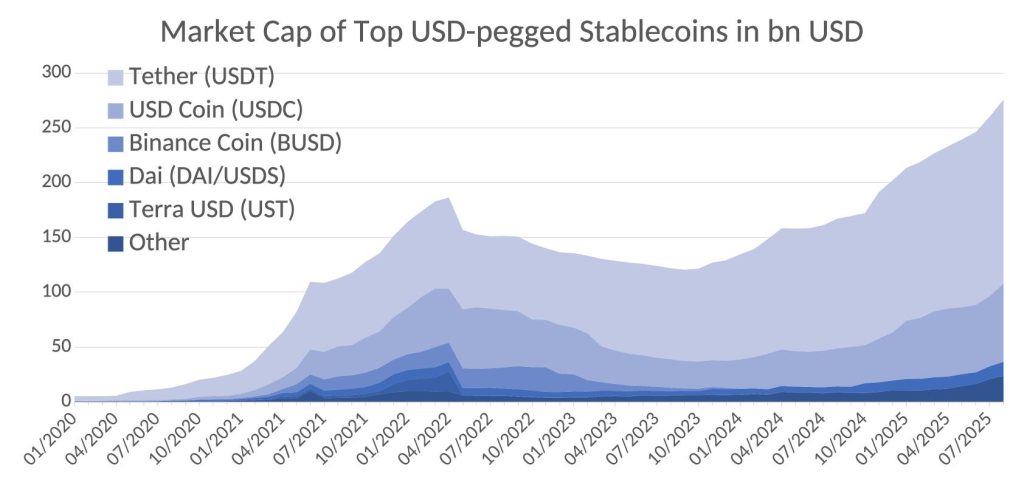“Stablecoins: Adoption and Fragility” (Sveriges Riksbank Working Paper No. 423; This version: 11/2025)
- Abstract: This paper develops a payment-centric model of stablecoin runs with endogenous consumer adoption and seller acceptance, making the issuer’s liability composition an equilibrium outcome. Stablecoin fragility arises endogenously from shifts in the composition of the holder base as adoption expands across transactional environments. Broader adoption attracts users who derive lower transactional value from holding stablecoins, increasing the aggregate propensity to run and generating a destabilizing run externality that individual adoption decisions do not internalize. In addition, sellers’ multi-homing choices create uninternalized network effects that erode the transaction value of bank deposits. By linking adoption dynamics to issuer fragility, the model provides theoretical foundations for regulatory concerns about excessive stablecoin adoption and delivers novel testable implications. The analysis further shows that seigniorage and congestion effects can mitigate run risk, whereas issuer moral hazard can amplify fragility, even in the presence of regulatory disclosure. (D83, E4, G01, G28)

Keywords: Money, payment preferences, financial stability, financial regulation.
